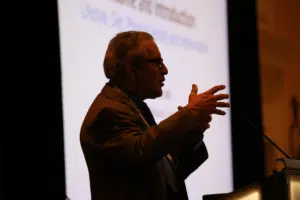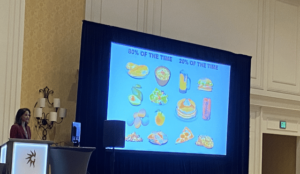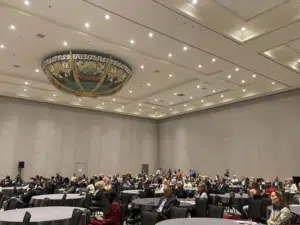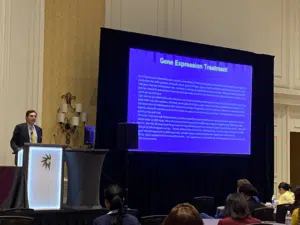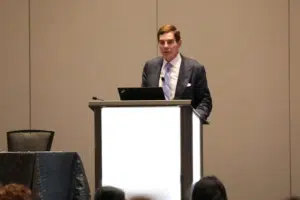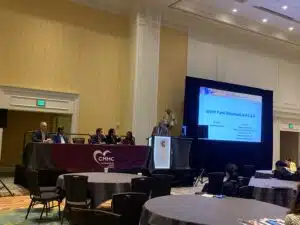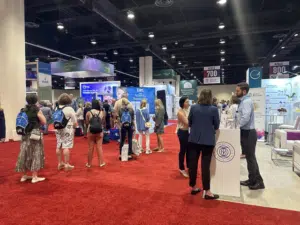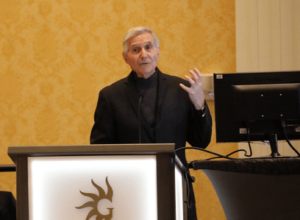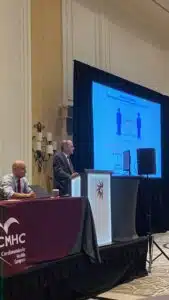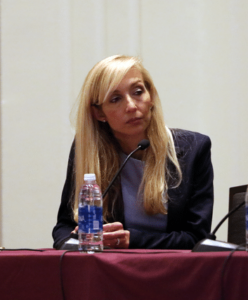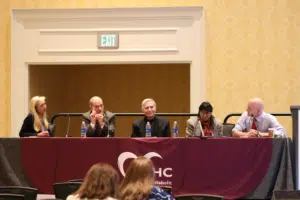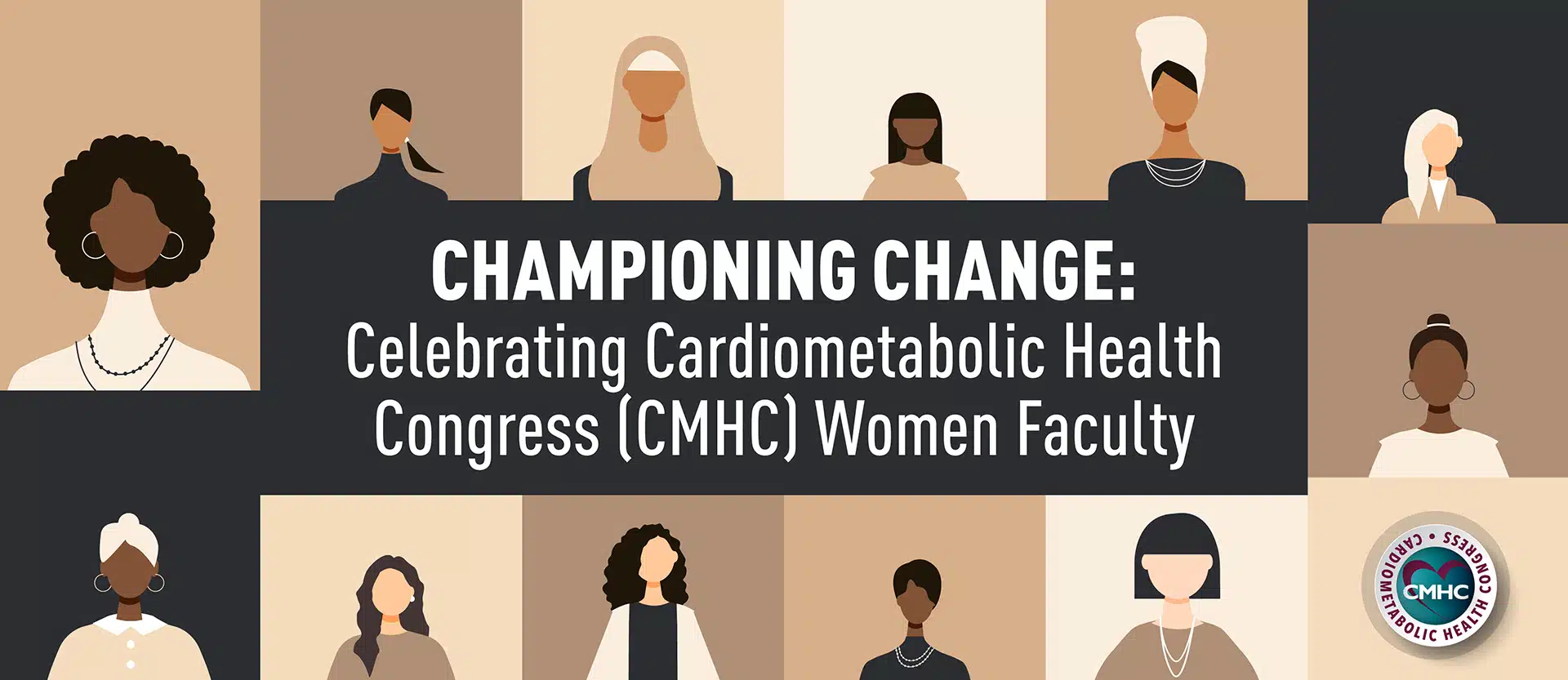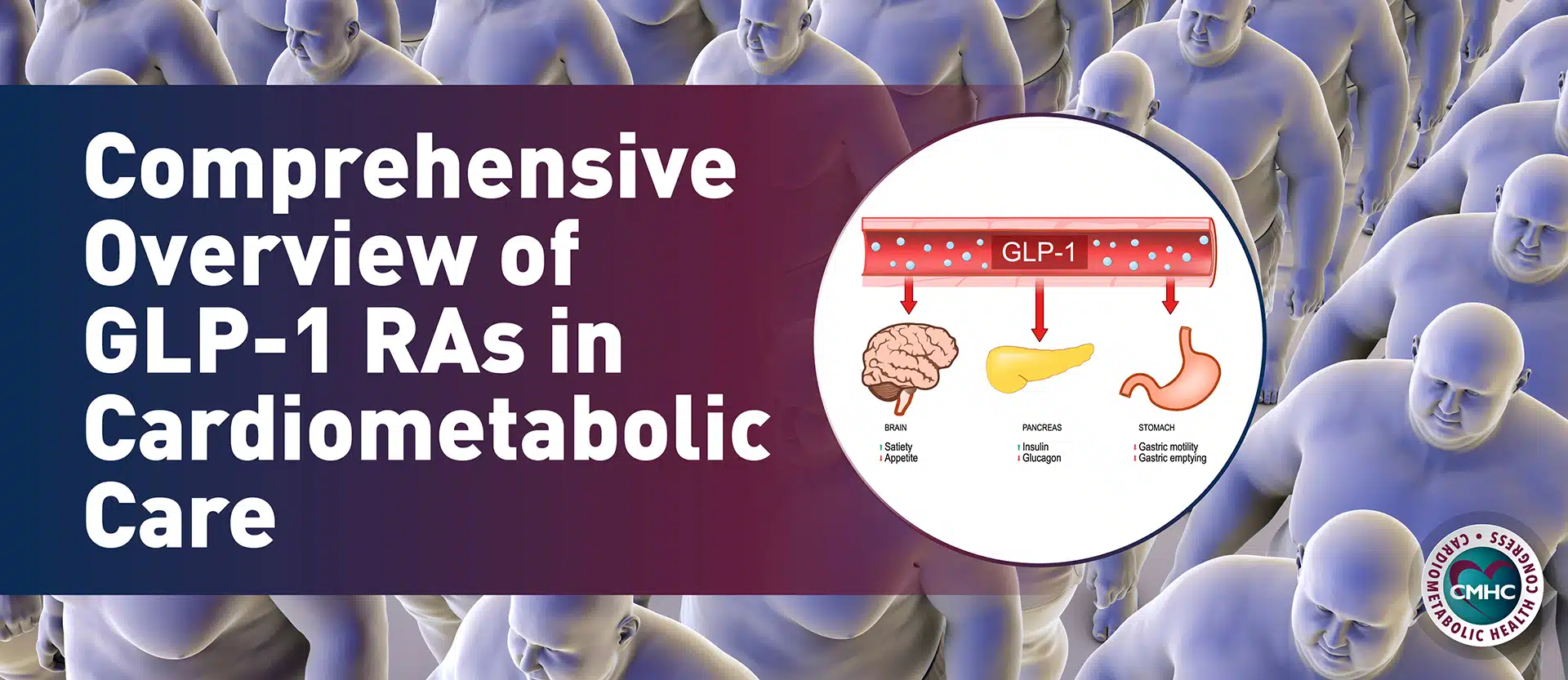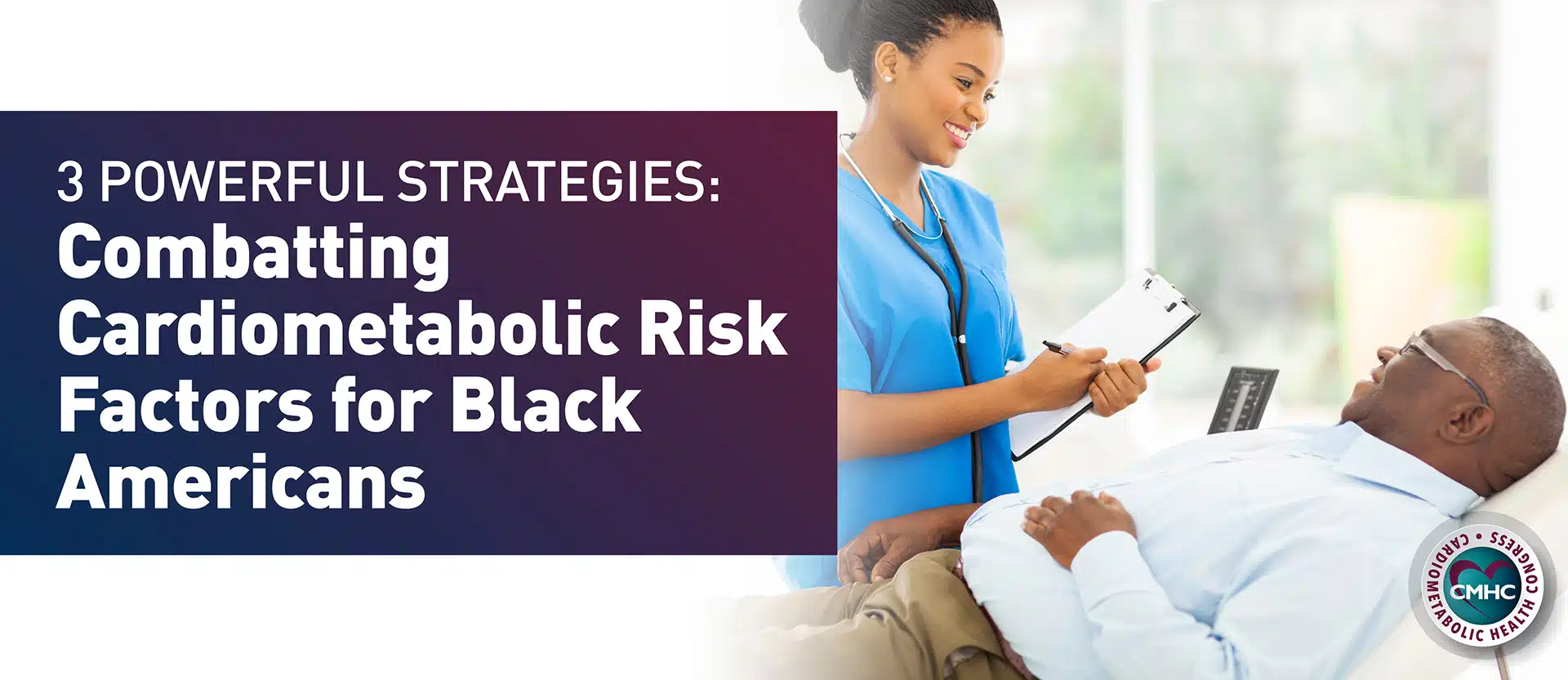The Spring conference from Cardiometabolic Health Congress (CMHC) began on Friday, May 19, 2023, at the Gaylord Palms Resort & Convention Center in Orlando. Taming the Flames: Inflammation in Cardiometabolic Disease, focused on practical approaches to identify and address inflammation as well as how to optimize guideline-directed care for patients with cardiometabolic diseases and risk factors.
8:oo a.m. EDT — Welcome and introduction from CMHC chairperson Robert H. Eckel, MD, began the morning presentations on the role of lifestyle, diet and physical activity on inflammation. Inflammation is a primary mechanism in cardiometabolic diseases including coagulation, atherosclerosis, metabolic syndrome, renal diseases and type 2 diabetes. It is also associated with the development of many diseases that occur comorbidly in people with cardiometabolic conditions such as psoriasis, depression and cancer.
8:05 a.m. EDT — Nutrition, inflammation and cardiometabolic disease presented by Pam R. Taub, MD. In her presentation on nutrition’s crucial role in modulating inflammation, Dr. Taub reviewed the dietary guidelines on foods high in sugar, saturated fat, sodium, and cholesterol. Clinical evidence in individuals who consume these foods demonstrated a higher incidence of cardiometabolic disease and morbidity and mortality from existing type 2 diabetes, coronary heart disease, and kidney failure. She referenced the 80/20 rule, in which patients choose heart-healthy fruits, vegetables, lean proteins and healthy fats 80% of the time and are allowed to indulge about 20% to avoid deprivation and ultimately reverting back to old habits.
“Encourage patients to eat healthy most of the time in order to better support patients and give them some room to make long-term commitment changes.” – Dr. Taub
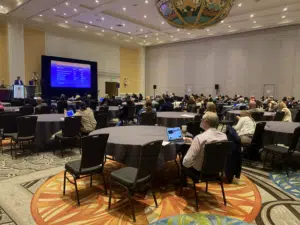
“The benefits of exercise on cardiorespiratory fitness are pleiotropic.” – Dr. Lavie
8:45 a.m. EDT — Stress management, sleep and recovery, presented by Mayo Clinic cardiologist and sleep specialist Virend K. Somers, MD, PhD, was a standing-room-only session with more than 200 audience members. During his presentation on how stress, sleep-wake patterns, and disordered sleep affect metabolism function, decision-making, and key disease markers such as inflammatory levels, Dr. Somers placed specific emphasis on the significance of slow breathing to reduce stress.
9:05 a.m. EDT — Genetic testing for early hypertension dyslipidemia, diabetes mellitus and coronary heart disease, presented by Mark C. Houston, MD, covered treatment for patients who have genetic mutations associated with common cardiometabolic conditions.
9:25 a.m. EDT — Transition of NAFLD to NASH: Inflammation in the culprit, educated clinicians about the pathogenesis, emerging diagnostics approaches, and best practices for the management of nonalcoholic fatty liver disease (NAFLD), the hepatic manifestation of metabolic syndrome. The session, presented by Stephen A. Harrison, MD, focused on nonalcoholic steatohepatitis (NASH), the most aggressive subtype of NAFLD, which is characterized by inflammation, cell damage, and fat on the liver that can lead to complications like liver cancer and cirrhosis.
9:45 a.m. EDT — Expert panel discussion and Q&A welcomed all the morning’s presenters to the stage for discussion and debate moderated by Dr. Eckel. The panel discussed the topics presented thus far, and then took some of the audience members’ questions regarding specific applications of these insights into their clinical practices.
11 a.m. EDT — PME lunch symposium, sponsored by VeroScience and led by the company’s president and chief science officer Anthony H. Cincotta, PhD, covered the use of circadian bromocriptine-QR therapy to attenuate elevated sympathetic tone, postprandial dysmetabolism, and immune pro-inflammatory state, reducing adverse cardiovascular event rates. Attendees dined on pasta, chicken and salad while Dr. Cincotta detailed VeroScience’s clinical solutions for cardiovascular-related inflammation.
12 p.m. EDT — Exhibit hall break where the attendees visited exhibitor’s booths and chatted about the solutions, technologies, and practice-enhancing tools designed by industry tastemakers specifically for the CMHC audience. The exhibit hall is one of attendees’ favorite downtime opportunities at CMHC events, where they can catch up on the latest and greatest from established brands and up-and-coming names alike. The exhibit hall is also where happy hours and giveaways take place at close of afternoon sessions.
1:00 p.m. EDT — Introductions for the afternoon session were made by distinguished CMHC faculty member and chief of Baylor College of Medicine’s Section of Cardiology, Christie M. Ballantyne, MD.
1:05 p.m. EDT — The keynote address of the 2023 Spring CMCH conference was presented by Peter Libby, MD, tackled the role of inflammation and immunity in aging and atherosclerosis. Dr. Libby examined the interplay between several pathophysiological processes, including dyslipidemia, endothelial dysfunction, and inflammation on cardiovascular mortality. Several preclinical and clinical studies have identified cardiovascular risks as chronic inflammatory disorders and contributed by various inflammatory cells to vascular oxidative stress. Therefore, Dr. Libby stressed it is imperative for clinicians to understand the science linking inflammation and oxidative stress with atherosclerosis and cardiovascular disorders.
1:40 p.m. EDT — Inflammation and atherosclerosis: current and future approaches for clinical interventions, a session led by Paul M. Ridker, MD, MPH, addressed current and future approaches for clinical interventions to address inflammation in the development of atherosclerosis. Recent clinical trials demonstrate significant adverse cardiovascular event reduction using interleukin or tubulin polymerization inhibitors. These agents markedly reduced biomarkers of inflammation and thrombosis relevant to atherosclerosis, with the immune system and inflammation playing a key role in this process.
“It is not an either/or situation. Lipid lowering and inflammation inhibition are not in conflict but are synergistic. In the future, the combined use of aggressive LDL-lowering and inflammation-inhibiting therapies may well become standard of care for almost all atherosclerosis patients.” – Dr. Ridker
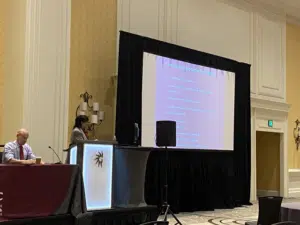
“HFpEF is a syndrome that we have not been able to classify accordingly to date. I see it as a total milieu and the heart is a total bystander, and the condition is driven by cardiometabolic comorbidities. That is why it has been hard for us to find good therapeutics for this condition until recently, with the advent of SGLT2 inhibitors.” Dr. Pina
2:50 p.m. EDT — Links between systemic inflammation and cardiovascular disease: Focus on cardio-rheumatology, was presented by Brittany N. Weber, MD, PhD, and covered markers of inflammation commonly observed in patients who’ve had a heart attack or stroke. Although not completely understood, systemic inflammation could be a sign of an atherogenic response to a buildup of plaque in the arteries.
“For my patients with systemic inflammatory conditions, I make sure to check high-sensitivity CRP in addition to regular labs, and I recommend that all patients should get high-sensitivity CRP testing.” – Dr. Weber
3:20 p.m. EDT —Expert panel discussion and Q&A closed the first day of the conference. All the afternoon’s presenters took the stage to discuss and debate the topics presented thus far, and then took some of the audience members’ questions regarding specific applications of these insights into their clinical practices. The session was moderated by Dr. Ballantyne.
Stay tuned tomorrow for another recap of the sessions from day two of Taming the Flames: Inflammation in Cardiometabolic Disease, when experts in hypertension, lipids, obesity, type 2 diabetes, and kidney disease will dive into inflammation’s role in the disorders and risk factors they see in clinical practice.



